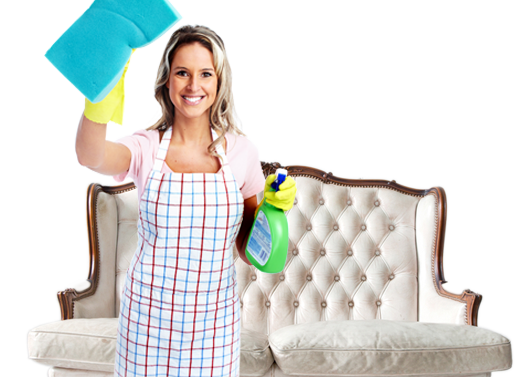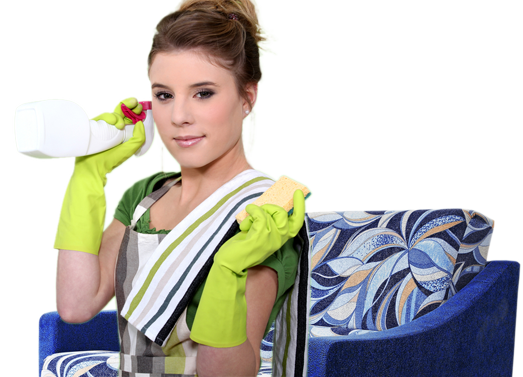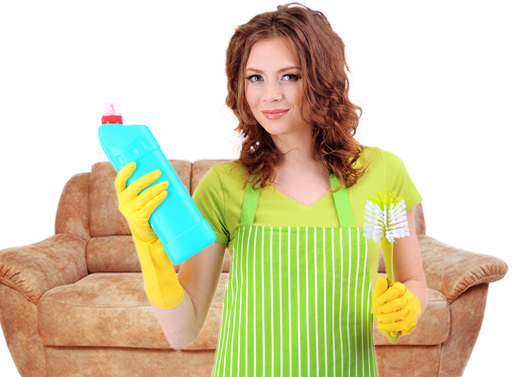Master the Art of Home Carpet and Hard Flooring Cleaning
Posted on 19/06/2025
Master the Art of Home Carpet and Hard Flooring Cleaning
Cleaning your home's floors does much more than improve aesthetics--it protects your investment, extends the life of your carpets and hard flooring, and creates a healthier living environment. Whether you're battling stubborn carpet stains or looking to keep your hardwoods gleaming, knowing the right methods makes all the difference. In this comprehensive guide, we will cover how to master carpet cleaning and expert techniques for hard flooring maintenance, ensuring your floors always look their best.
Understanding the Importance of Proper Floor Cleaning
Clean floors are foundational to a healthy and inviting home. Over time, dirt, grime, allergens, and bacteria accumulate on carpets and hard flooring. Regular and strategic cleaning preserves the beauty of your flooring, prevents damage, and supports indoor air quality.
- Prolongs the life of floor coverings
- Enhances the overall appearance of your home
- Reduces allergens and pollutants
- Eliminates unpleasant odors
- Keeps your home investment in top shape
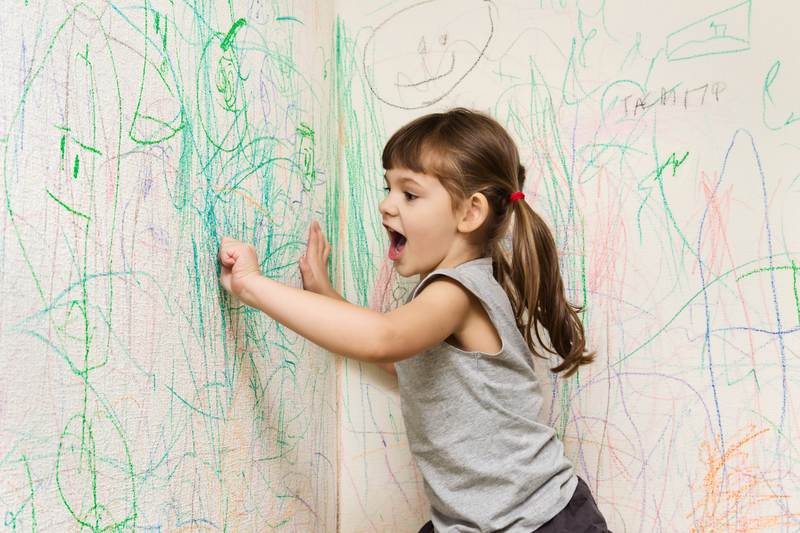
Essential Tools for Home Carpet and Hard Flooring Cleaning
Having the right equipment is the first step to effective floor care. Below is a list of must-have cleaning tools and products:
- Vacuum cleaner with HEPA filter
- Broom and dustpan
- Steam mop or microfiber mop
- Carpet shampoo or eco-friendly cleaning solution
- Scrub brush (for grout and spot cleaning)
- Bucket and clean cloths
- Protective gloves
Mastering Carpet Cleaning at Home
Step 1: Regular Vacuuming is Key
To maintain your carpet and keep allergens low, vacuum your carpets at least twice a week. In high traffic areas, daily vacuuming is ideal. Use slow, overlapping strokes and adjust the vacuum height for proper suction. For pet owners, use a vacuum designed specifically for pet hair and dander.
Pro Tip: Empty the vacuum filter or bag regularly to ensure optimum performance.Step 2: Tackle Stains Immediately
Accidents happen, but acting fast can prevent permanent stains.
- Blot, don't rub: Always blot spills with a clean, dry cloth to absorb as much liquid as possible.
- Use cold water: Hot water can set certain stains.
- Apply a carpet stain remover or a mix of white vinegar and water.
- Gently blot until the stain is gone.
- Allow the area to air dry.
Step 3: Deep Clean Rugs and Carpets
A thorough deep cleaning every 6-12 months removes deep-down dirt and refreshes fibers. You can rent or buy a carpet cleaner, or hire a professional service.
- Move furniture and vacuum first.
- Pre-treat heavily soiled areas.
- Follow your machine's instructions with an appropriate cleaning solution.
- Allow carpets to dry thoroughly before replacing furniture.
Step 4: Odor Removal for Carpets
Carpets can trap odors from pets, food, and humidity. Sprinkle baking soda liberally over the carpet, let it sit for at least 30 minutes, and then vacuum thoroughly. For persistent smells, an enzyme-based cleaner can help.
Preventative Maintenance for Carpets
- Place rugs or mats at entrances.
- No shoes indoors: Reduces dirt and extends carpet life.
- Rotate furniture regularly to avoid uneven wear.
- Schedule annual professional cleaning for best results.
How to Clean and Maintain Hard Flooring
Hard flooring--including hardwood, laminate, vinyl, and tile--offers beauty and durability but requires proper care to stay looking like new. Here's how to achieve sparkling results with minimal effort:
Step 1: Sweep and Dust Frequently
Grit, dust, and dirt act like sandpaper underfoot, scratching and dulling your floors over time. Sweep daily with a soft-bristle broom or use a dust mop to catch fine particles. For hard-surface vacuuming, ensure your machine is suitable for floors to avoid damage.
Step 2: Mop with the Right Cleaner
Each type of hard flooring has its ideal cleaning routine.
- Hardwood floors: Use a barely damp microfiber mop and a pH-neutral, wood-safe cleaner. Never flood the floor--excess water can cause warping.
- Laminate floors: Avoid wet mopping; stick with a dry or slightly damp mop.
- Tile and vinyl: Clean with warm water and a few drops of mild dish soap. For grout, use an old toothbrush and baking soda paste.
Step 3: Handle Spills and Stains Swiftly
- Wipe spills immediately to protect against stains and swelling (especially on hardwood and laminate).
- Avoid harsh, acidic cleaners which can etch or fade floors.
Step 4: Polishing and Buffing
Regular polishing helps hardwood retain its shine. Use manufacturer-recommended polish and a soft cloth. Avoid wax or oil soaps on polyurethane-finished floors, as these can leave a residue.
Step 5: Grout and Sealing
Tile and stone floors may need periodic grout cleaning. A mixture of water and baking soda, scrubbed with a brush, can revive dingy grout lines. For natural stone, reseal annually to prevent staining and water absorption.
Hard Flooring Preventative Tips
- Place felt pads on furniture legs to avoid scratching.
- Use area rugs in high-traffic zones.
- Control humidity levels at home to prevent wood expansion or shrinking.
- Keep pet nails trimmed to prevent surface gouges.
DIY Versus Professional Floor Care
Wondering when to call in the pros? While most daily maintenance can be handled as a DIY project, periodic professional treatments can provide deep restoration that household methods cannot match.
- Carpets: Professional hot water extraction removes ingrained soils, dust mites, and allergens more thoroughly than home machines.
- Hardwood floors: Pros can refinish scratched or dull planks and reseal or repair damage.
- Tile and grout: Steam cleaning or sealing is often best done by flooring experts.
Eco-Friendly Floor Cleaning Solutions
Green cleaning is not only gentle on the planet--it's also healthier for your family and pets. Many commercial cleaners contain harsh chemicals, but you can achieve excellent results with natural alternatives.
Homemade Cleaners
- For carpets: Mix equal parts white vinegar and water in a spray bottle for spot cleaning.
- For hardwood: A few drops of castile soap in water make a mild, floor-safe solution.
- For tile: A combination of baking soda and water is great for scrubbing grout lines.
Sustainable Cleaning Tips
- Choose reusable microfiber cloths over disposable wipes.
- Opt for refillable cleaning product containers.
- Avoid overuse of detergents to minimize chemical buildup on floors.
Best Practices for Keeping Floors Looking New
- Establish a cleaning schedule: Set reminders for vacuuming, mopping, and deep cleaning.
- Act fast on spills and stains: The sooner you respond, the less likely damage or discoloration will occur.
- Keep your cleaning tools clean: Wash mop heads, dusters and vacuum filters regularly to avoid reintroducing dirt.
- Rotate furniture and rugs: This prevents uneven wear and prolongs floor life.
- Protect from direct sunlight: Use window treatments to avoid fading or warping caused by UV rays.
- Train family and guests: Make shoe-free policies and mat placements standard practice.
Common Mistakes to Avoid in Carpet and Hard Flooring Cleaning
- Overwetting carpets or hardwood: Excess moisture can cause mildew or warping.
- Using the wrong cleaner: Ammonia or bleach may damage color and finish--always use product-specific solutions.
- Skipping regular maintenance: Don't wait until dirt is visible; by then, it may have already caused damage.
- Using abrasive tools: Wire brushes or scouring pads can permanently scratch floors.
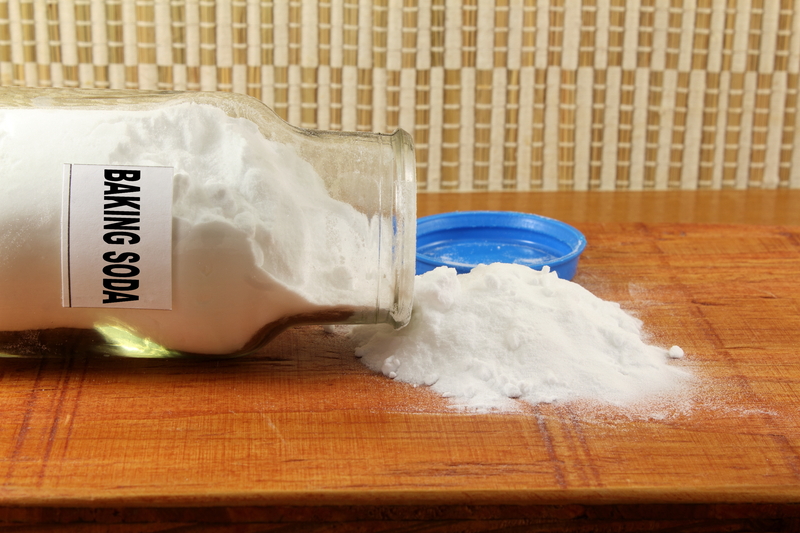
Frequently Asked Questions About Home Carpet and Hard Flooring Cleaning
- How often should I deep clean my carpets?
Most experts recommend deep cleaning carpets every 6-12 months, or sooner if you have pets, children, or allergy sufferers. - Is steam cleaning safe for all flooring?
Steam cleaning is ideal for tile and sealed surfaces, but should be avoided on most hardwood and laminate floors as excess moisture can cause swelling or damage. - Can I use vinegar on hardwood floors?
Undiluted vinegar is too acidic for hardwood; dilute carefully or choose a wood-specific cleaner. - How do I remove pet urine from carpet?
Blot excess moisture, apply an enzyme cleaner, and let it sit before blotting again. Avoid scrubbing to prevent driving the stain deeper.
Conclusion: Become a Floor Care Pro
Mastering the art of home carpet and hard flooring cleaning is about establishing simple, effective routines and using the right techniques for your specific surfaces. By tailoring your approach--with eco-friendly methods, regular maintenance, and professional assistance as needed--you'll enjoy cleaner, healthier, and longer-lasting floors. Remember: an immaculate floor is the foundation of a beautiful home.
For more home care tips or to share your favorite floor-cleaning hacks, leave a comment below and join our community of floor care experts!


